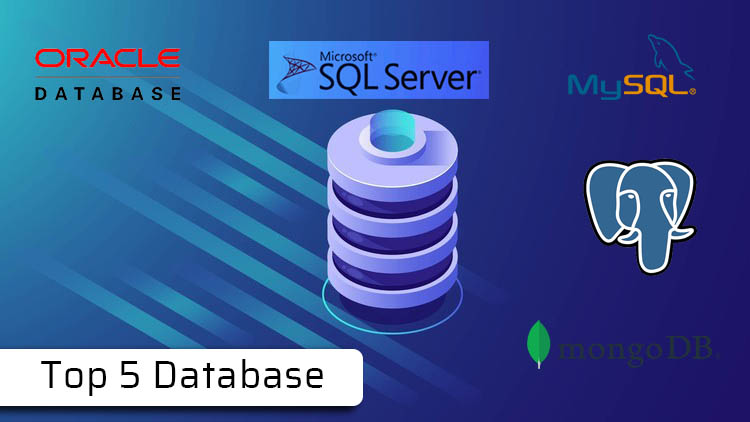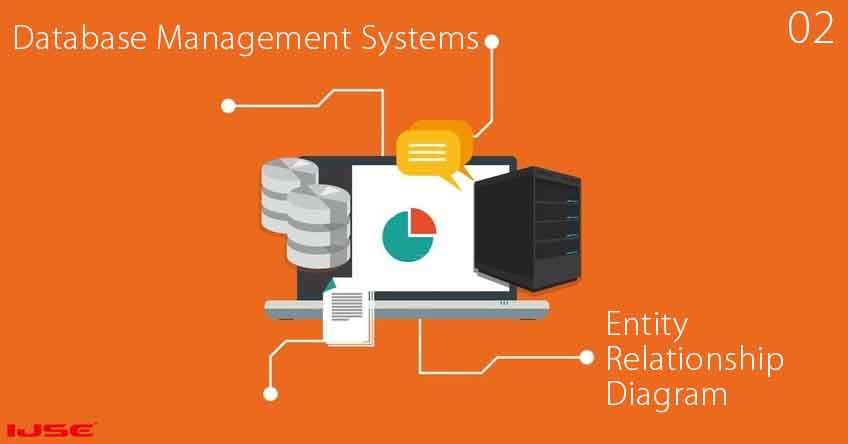The modern businesses either large corporations or small businesses, all tend to rely on software solutions.
Almost all the components of a business heavily rely on data and information either to sustain or analyze for critical decision making that will affect the whole business.
Database Management Systems help your business to gather relevant data, analyze them and put it into use for the growth of the business.
It may be automation, marketing, customer service, finances, sales, or any other aspect of your business.
Current top 5 database management systems used in the industry.
1. Oracle database
Oracle database management system is an enterprise-level relational database that offers good data security and transaction processing.
Free version available: yes

Features:
- Access Control
- Data Migration
- Database Conversion
- Multiple programming languages supported
- Performance analysis
- Virtualization
- Backup and Recovery
- Data Replication
- Relational.
Advantages:
- Better security and flexibility without needing many configurations.
- Better performance and shorter time to run queries.
- Oracle a verity of flexible tools and applications to customize the database to fit your needs.
- Supports complex join operations.
- Comparatively dependable and reliable compared to some of the platforms available in the market.
Disadvantages:
- The most noteworthy disadvantage of the Oracle database would be that it is rather costly.
- Compatibility issues with Microsoft operating systems.
2.MySQL
MySQL supports a larger scope of businesses from small businesses to larger enterprises to customize and manage their data.
Free version available: yes (MySQL community version).

Features:
- Robust transactional support
- Ease of management
- High performance
- The low total cost of ownership
- Comprehensive application development
- Scalability & flexibility
- High availability
- Secure data protection
- Web and data warehouse strength
Advantages:
- Data security
- On-demand scalability
- Round the clock uptime
- Comprehensive transactional support
- Complete workflow control
- The flexibility of open source
- Wide adopted and easy to use
- Fast, portable, and secure
Disadvantages:
- Restricted for complex business logic
- Transactions are not handled very efficiently
- Prior knowledge is required to operate.
3. SQL Server.
SQL Server is a relational database management system introduced by Microsoft as a database server that is used to store and retrieve data like any other database management system.
Free version available: yes (Developer, Express)

Features:
- Backup and recovery
- Virtualization
- Big data clusters
- Vulnerability assessment
- Always Encrypted with Secure Enclaves
- Resumable Online Index Creation
Advantages:
- Simplified installation
- Better Security Features
- Enhanced performance
- Various editions are available to choose fitting to your needs.
Disadvantages:
- Rather costly for a small business to handle.
- Difficult to use because SQL Server uses a different core language than other database management systems.
4. PostgreSQL
PostgreSQL is an open-source relational database that is widely used after Oracle, MySQL, and SQL server which is defined as a “database that fits all” by the reviewers.
Free version available: yes

Features:
- User-defined types
- Table inheritance
- Sophisticated locking mechanism
- Object-oriented and ANSI-SQL2008 compatible.
- Standby server and high availability.
- Full support for client-server network architecture.
Advantages:
- Only opensource DBMS that provides enterprise-grade functions and performance.
- PostgreSQL supports ACID (Atomicity, Consistency, Isolation, Durability).
- Diverse community.
- Full-text search.
- Compatible with various platforms using all major languages and middleware.
Disadvantages:
- Many open source apps tend to support MySQL than PostgreSQL.
- PostgreSQL is not owned by a single organization.
- Comparatively slower.
5. MongoDB
MongoDB is a document-oriented NoSQL database used for high capacity data storage. MongoDB uses collections and documents mapped with key-value pairs as the basic unit of data in MongoDB making it different than the traditional database management systems.
Free version Available: yes

Features:
- Support ad hoc queries
- Supports indexing
- Data duplication between servers to keep the system running in cases of hardware failure.
- Supports map-reduce and aggregation tools.
- Uses JavaScript instead of Procedures.
- High-performance.
Advantages:
- Thes structure of a single object is clear.
- No complex joins.
- Deep query-ability. MongoDB supports dynamic queries on documents using a document-based query language that’s nearly as powerful as SQL.
- Tuning.
- Easy to scale.
- Schema-less
Disadvantages:
- High data consumption
- Joins not supported
- No transaction supports
Click here for the visit the research data for the most popular databases.




